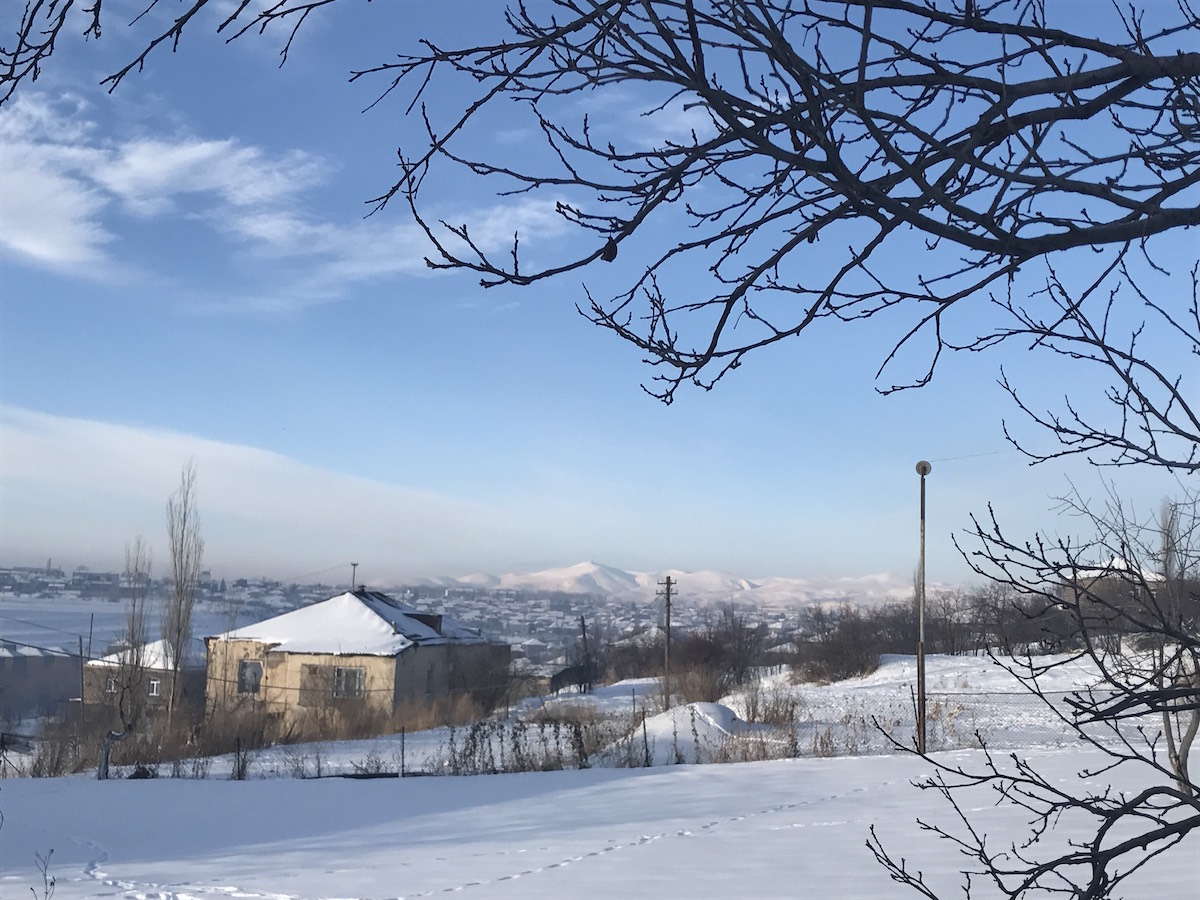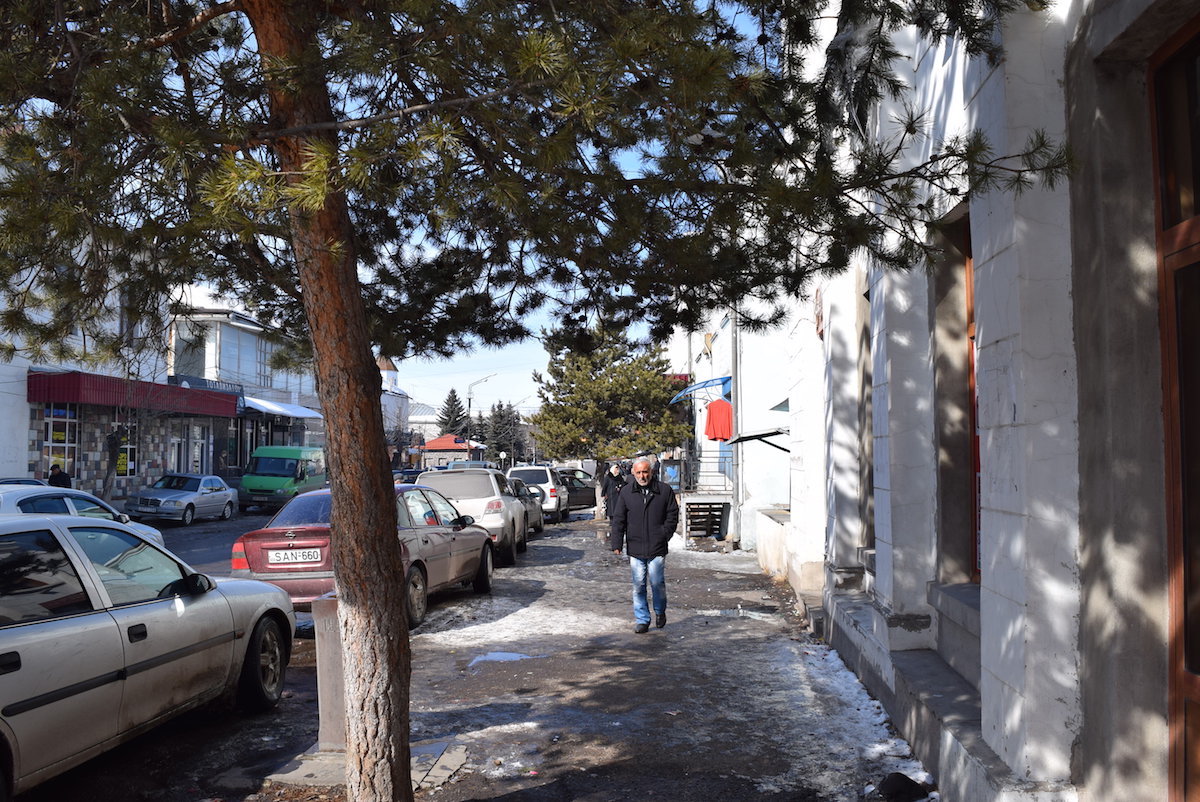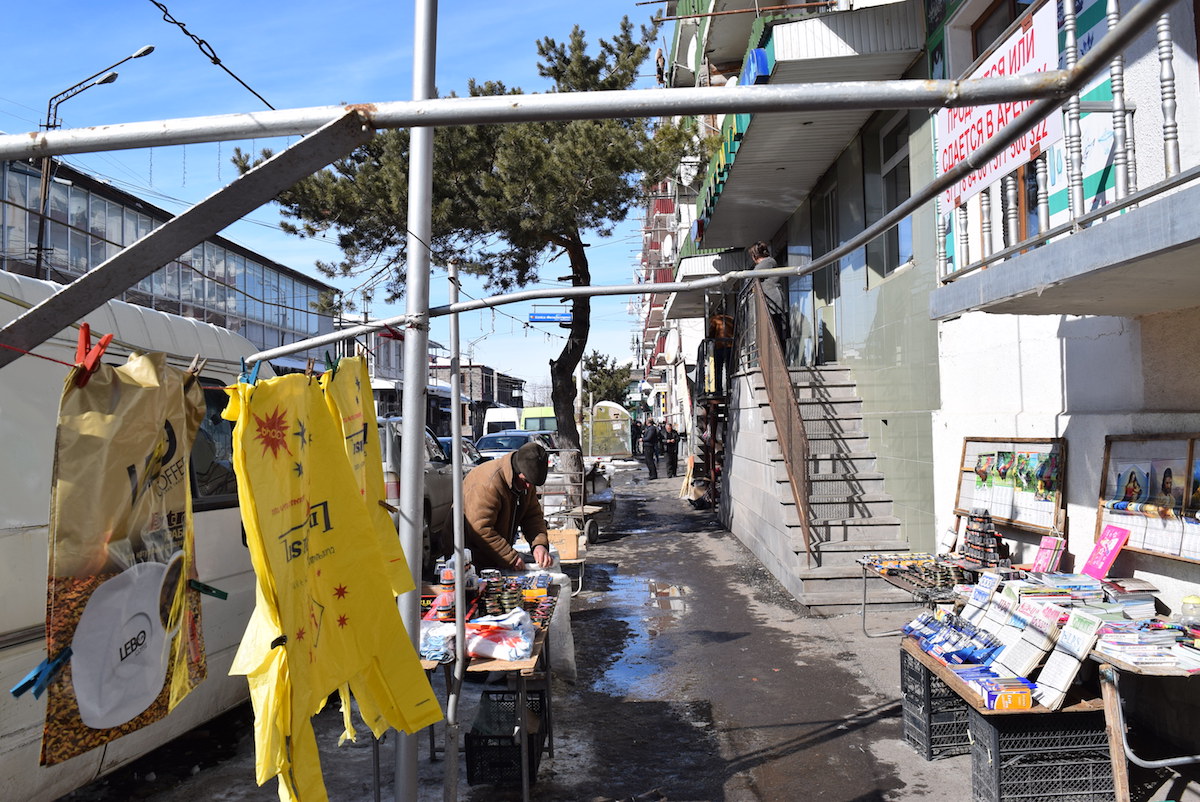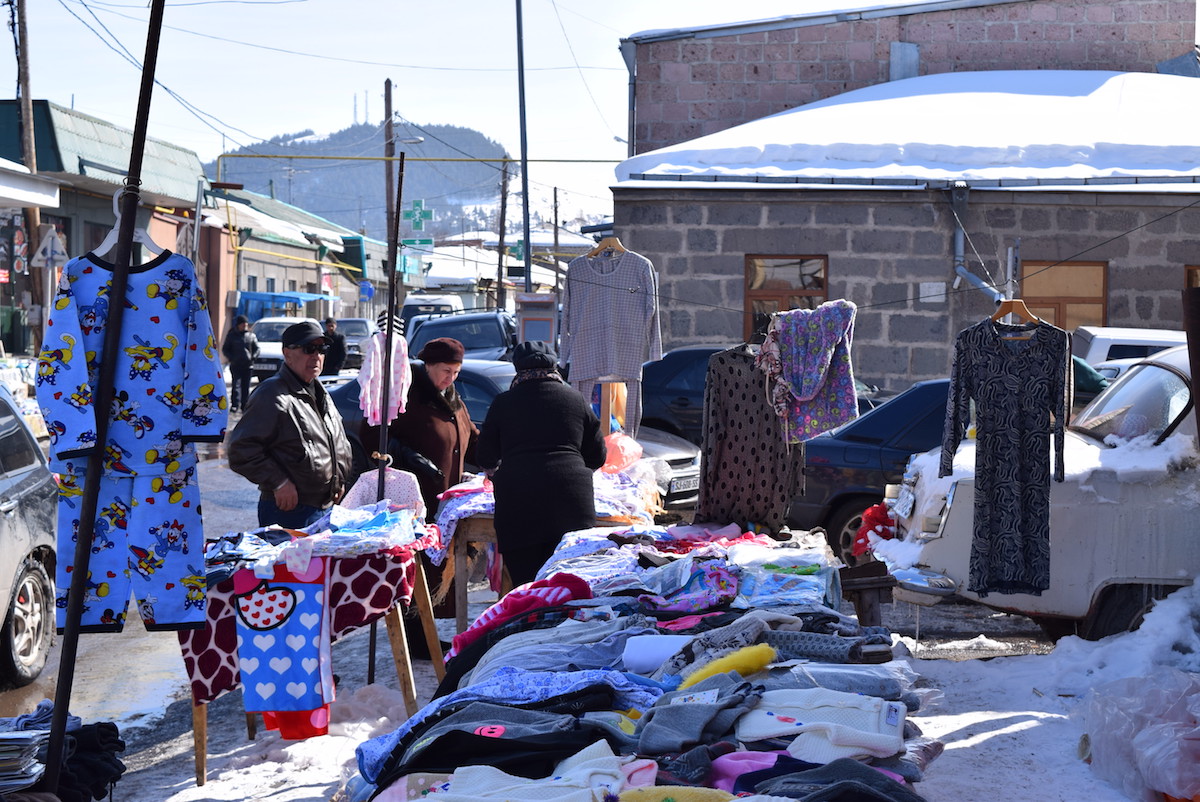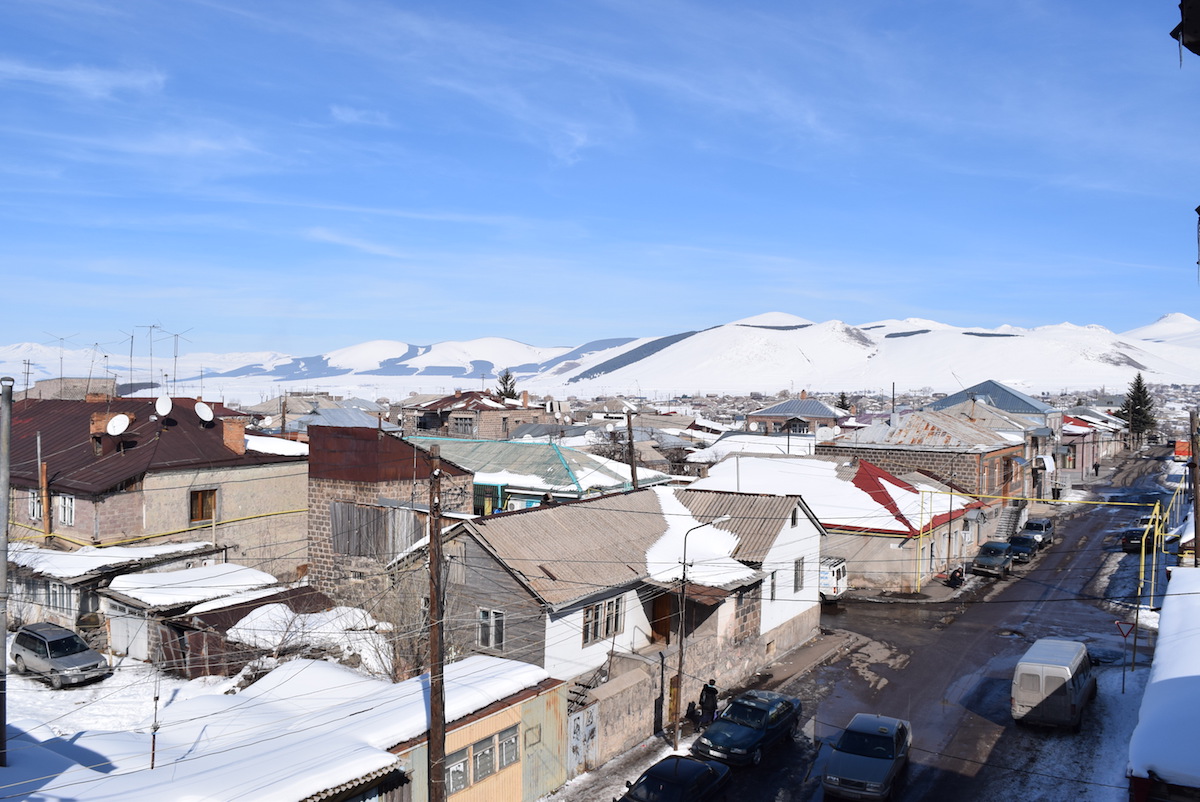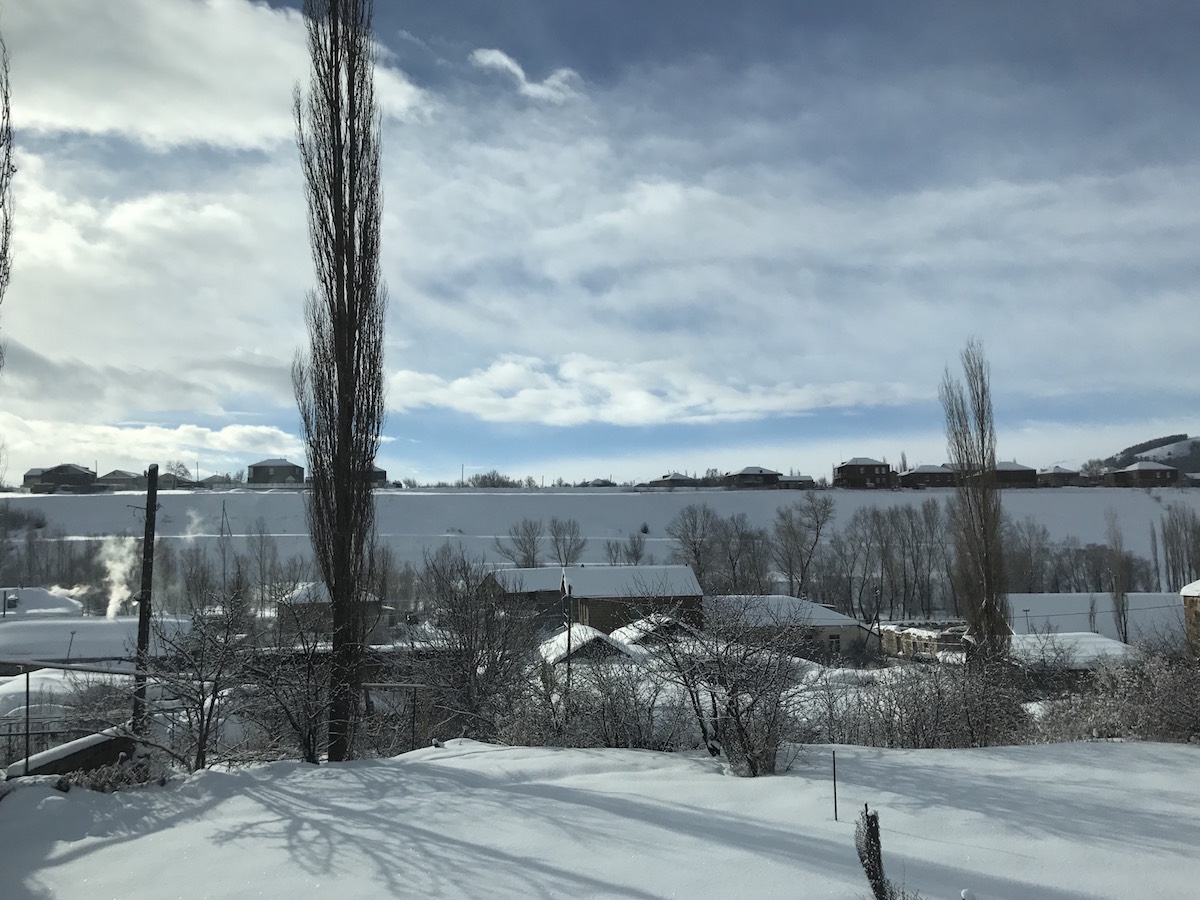Armenian language in Georgia: ‘pros’ and ‘cons’ of the official language status
Georgia’s Javakheti region, which is predominantly populated by the Armenian community, is facing several language-related problems at once.
One of the problems is that the majority of the population here don’t know Georgian language and that creates considerable problems not only to the people, but also to the government (be it employment or settlement of some matters in the public institutions).
Another problem is that most of the people here have troubles with their native Armenian language: the locals schools are in desperate need for textbooks and teachers with Georgian language skills (it’s prohibited to teach even in Armenian school without those skills).
And there’s also the third problem: the local Armenian community is the third largest ethnic group in Georgia (after the Georgian and Azerbaijani ones) and it constitutes predominant majority of the population in Javakheti region. So, the community aspires to ensure that Armenian language is granted an official language status at least at the regional level.
The issue of Armenian language status was first raised back in 1999. Since that time, the community has been insisting, with varying extent of activity, on adoption of this decision. Official Tbilisi and many public figures, however, mostly have sharply negative reaction to this idea.
Let’s consider the arguments of both parties.
Arguments ‘for’
- Armenian is the only language that the entire community knows
Sakrebulo’s (local administration) November 2016 decree on production and installation of new road signs in Akhalkalaki district was the latest open manifestation of the request to use Armenian as an official language. Geographical names on the road signs in Georgia are traditionally given in Georgian and English. Meanwhile, Akhalkalaki administration decided to add an Armenian language inscription to them.
The public supported the aforesaid proposal with great enthusiasm. However, it remained just a proposal, since it stirred up negative reactions beyond the region. There were speculations in various media outlets, first in Azerbaijan and then in Tbilisi, about the approaching new wave of separatism in Samtskhe-Javakheti region.
Afterwards, as the MPs themselves note in informal conversations, they received phone calls from various official agencies and institutions in Tbilisi, as well as from the regional administration, inquiring what was going on and why the city council (Sakrebulo) was pushing through the anti-national ideas.
After that, Sakrebulo members considered it right and proper to forget about this issue.
People in Akhalkalaki avoid openly discussing the Armenian language status. And the only reason for such a silence is that every time the local Armenians raise the Armenian language status issue, it is perceived by official Tbilisi as a manifestation of separatism.
A representative of one of the local NGOs, who asked not to be named, recalled how she had been pressured. She was trying to draw attention to the Georgian Education Ministry’s unfair decision, as many in the Armenian community viewed it, to reduce Armenian Language class hours in schools.
“I wasn’t actually talking about the Armenian language status, but was rather pointing to the fact that increase in Georgian language teaching hours and simultaneous reduction of the Armenian language classes causes the population’s alienation and is perceived as obtrusion of the official language at the expense of the native one. However, I was blamed for lobbying the idea of granting the Armenian language the regional status and was persistently recommended to hold my tongue,” she says.
- If the Armenian language is granted an official language status in the region, the unemployment rate among the locals will drop
Gegham Shahbazyan was born and brought up in Akhalkalaki. He received higher education in Yerevan. Like most of the people here, he doesn’t know the Georgian language. Therefore, he could hardly find any job in his native country. For two years on end, he, like most of the local men, went to work in Russia. However, he had problem adapting to the new conditions there and so he returned back. He doesn’t know what to do now.
In his words, if the Armenian language will get an official status in Georgia, then he will have a chance to find a job at home.
“I know many people like me, who have good professional skills, but they couldn’t find any job because they don’t know Georgian. When I studied at school, we almost didn’t have Georgian classes,” says Gegham.
Violetta Uzunyan used to work as a nurse in Kulikam village, Akhalkalaki district, in 1990-2012. She was dismissed in 2013 after she’d failed in the Georgian language test during the qualifying exam.
“We studied in Soviet times. Georgian language wasn’t taught here at all. And in the daily life there is no one to speak Georgian to, since there are only Armenians here. Whereas today, we are required to know Georgian language, otherwise we will lose our jobs. So, what are we supposed to do?” says Violetta.
“I had worked for over 30 years and no one had ever complained about me. But I was dismissed anyway. Then I decided to appeal to the Public Defender. It cost me GE170 to draw up an application in Georgian, to have it translated and to prepare all relevant documents! And all that turned out to be in vain,” says Violetta.
“We have to pay a dear price even for an ordinary document; we are squeezed the last money we have. So, for us, the Armenians, the status of Armenian language is always a pressing issue,” says Violetta.
Locals say, it’s a very serious problem and if there are no changes in Javakheti over the next decade, there will be the whole generation, who will have no command either of literary Armenian language, or the official Georgian one.
- Preserving ethnic identity
“The only thing we want is to preserve our ethnic identity. However, Georgian authorities misunderstand us. Once the language issue is raised, they immediately go on the offensive, saying ‘those Armenians in Javakheti are the separatists, seeking to organize one more Ossetia in Georgia. Therefore, it’s better to keep silence,” says Vrezh Karakhanyan, Akhalkalaki resident.
Ashot Kosyan was baffled by the question about separatism. Not knowing what to answer, he said:
“You’d better ask me how much I’m going to charge for my potatoes and what I’m going to do with that money. I’m glad that the potato prices are growing nowadays. At least I could do some minor repair in my living-room. Whereas you are asking me some provocative questions about separatism,” says Ashot Kosyan.
Everyone, whom we talked about the separatism in Akhaltsikhe, be it at the market, in school, in shop or chemist’s, said one and the same thing: the issue of Armenian separatism in Javakheti from time to time becomes topical in Tbilisi, because the central media perceive Javakheti as a region under the separatism threat and show interest in the region only when they see this issue becoming topical. There are no serious discussions on the regional problems, no attempts to find out the locals’ opinions and to provide their coverage in central media.
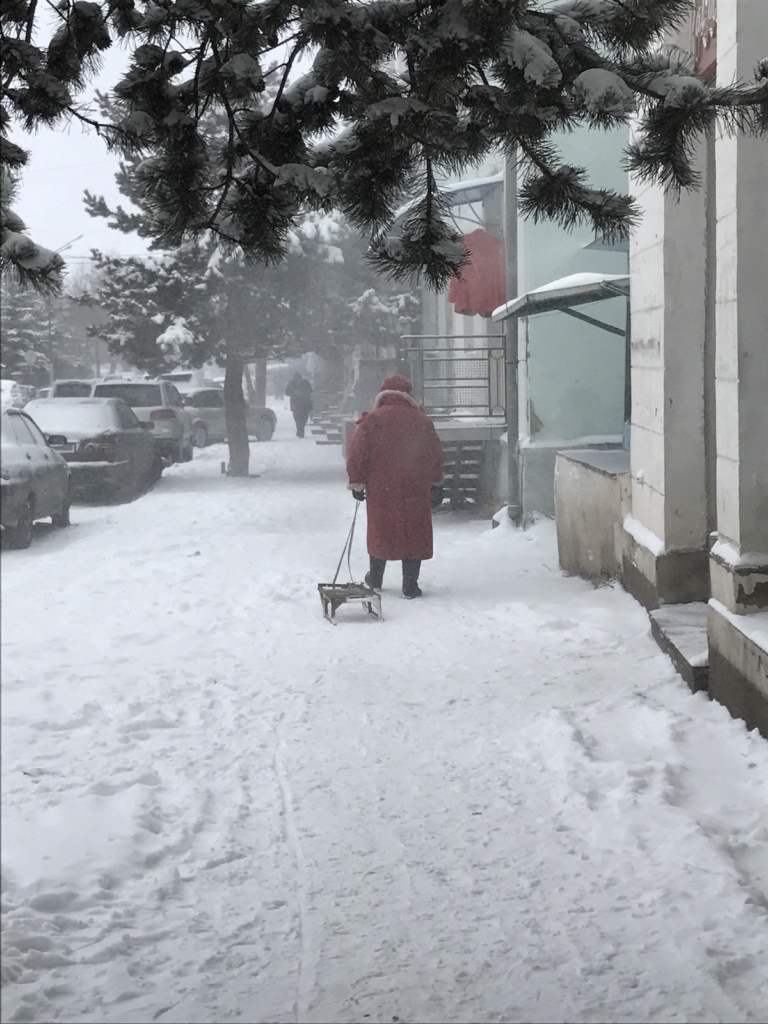
- Official status of the Armenian language will make for Armenian community’s integration into Georgian society
“Granting a regional status to the Armenian language will allow the local Armenian population to be more actively engaged in the socio-political processes in Georgia,” said the Sergey Minasyan, a political analyst from Yerevan, Deputy Director of the Caucasus Institute.
“Official Tbilisi’s language-related phobias are unjustified. They are associated with some exaggerated analogies with the Abkhazian and Ossetian conflicts, that are not comparable with the situation in Armenian-populated Javakheti region,” says Minasyan.
Artak Gabrielyan, a coordinator of the Council of Armenian NGOs of Samtskhe-Javakheti, also believes that conferring a regional status to the Armenian language will help the Armenian community in Georgia to start overcoming their present-day isolation.
“Here’s a particular example. A judge in Akhalkalaki is Armenian; a defendant and his lawyer are Armenians too. They either don’t know Georgian language at all, or have very poor language skills. Whereas a protocol is drawn up in Georgian. It means that at least the defendant signs the document he can’t make heads or tails of. All proceedings, trials and execution of internal documents should be necessarily conducted in Armenian language,” said Artak Gabrielyan.
In his opinion, two major issues for Javakheti region, i.e., granting a regional official language status to the Armenian language and mainstreaming of Georgian language in the region should be settled simultaneously and even jointly.
The Council of Armenian NGOs of Samtskhe-Javakheti has raised this issue on the number of occasions. We insist on taking serious approach to the issue of opening Georgian Language training centers throughout the region,” said Gabrielyan.
And the Armenian-Georgian University is an important tool for development of both languages in the region.
Arguments against granting the official language status to Armenian language in Javakheti
Van Bayburt, a journalist and editor of the Vrastan newspaper, former advisor to the ex-President, Mikheil Saakashvili, is one of the initiators of ‘cons’ arguments.
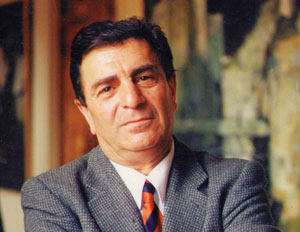
Bayburt says, this issue can be discussed only after at least 30-40 % of the country’s national minority groups learn the official Georgian language. “Otherwise, we will get the law under which Georgian language should no longer be learned.”
Context and broken promises
Many people in Akhalkalaki recall that ahead of 2012 parliamentary elections, when the government was actually changing, the now-ruling Georgian Dream party leader, Bidzina Ivanishvili, allegedly made some public pledges at the meeting with Javakheti population, saying the Armenian language would be granted the regional official language status in case his party won the election.
It’s hard to restore the picture and verify, whether the aforesaid was actually stated or not, The Samkhretis Karibche (Southern Gateway) newspaper, which is released in Samtskhe-Javakheti region, published a reported on that meeting on September 12, 2012, providing only a single quote as follows:
“Georgian is an official language, but it is no way set over against the Armenian language, which is spoken in the region densely populated by ethnic Armenians. People should have a choice…which language to speak, which language to dream-they should decide it themselves, rather than be prompted from above.”
The regional population claim, he also promised to open Armenian-Georgian University in Akhalkalaki.
Then Georgian Dream came into power and people in Javakheti say in high dudgeon that ‘Ivanishvili has forgotten his campaign pledges.’
Bidzina Ivanishvili visited Akhalkalaki in December 2016. At a news conference during his visit, a reporter from the local JNews agency asked him: ‘So, what about the status of Armenian language?’
Ivanishvili responded:
“I highly welcome the opening of Georgian-Armenian University. I don’t remember the context in which I mentioned it, but I would have said the same thing now.
As far as the language is concerned…the local language has been always a priority one in Akhalkalaki, the Armenian language isn’t restricted here by anyone. But there is another kind of problem-the Armenians here don’t know Georgian language. And due to the lack of official language skills, they are facing great problems. Our task is to help them learn the official language.”
According to Gegham Shahbazyan, whose opinion is shared by many in Akhalkalaki, such statement made by politically most influential figure in Georgia, proves the local community’s fears: the government aims at assimilation rather than at integration of the Armenians into the Georgian society. And that approach is dangerous for the local Armenian population.
“Such statement should draw the attention of the European organizations that spare no efforts to portray Georgia as a country with democratic values, which is integrated into Europe,” says Shahbazyan
Europe’s regional language best practice and Georgia
Back in 1992, the Council of Europe elaborated a document entitled ‘The European Charter for Regional and Minority Languages, with a declared goal to ensure equal rights to all groups of population.
“Under the Charter, the population with the native language enjoying a regional or minority status should be entitled to execute proceedings, get education and set up media outlets in their own language.
According to the Charter, regional or minority languages mean languages that are traditionally used within a given territory of a state by nationals of that state who form a group numerically smaller than the rest of the state’s population; that are different from the official language of that state and don’t represent either the dialects of the official language or the language of migrants”.
The Charter was submitted for signing and ratification to all members of the Council of Europe, as well as to any states willing to join the document.
Having joined the Council of Europe in 1999, Georgia assumed a commitment to sign and ratify the Charter within a year. The Charter was signed, but it hasn’t been ratified up to now. Since that time, the Council of Europe has been reminding in its recommendation that Georgian government should comply with the assumed commitments and ratify the Charter.
Those commitments cover the following 8 spheres:
[yes_list]
- education;
- justice;
- administration;
- mass media;
- culture;
- economy;
- social environment;
- transfrontier exchange.
[/yes_list]
Among the binding measures are as follows:
[yes_list]
- to introduce bilingual education;
- to provide opportunities to study in minority language only;
- to set up a radio station that will broadcast in minority language;
[/yes_list]
Canada and Switzerland are the best examples of the efficient minority language policy.
English and French enjoy the equal official language status in Canada. At the same time, the authorities are supporting and promoting the development of 5 more languages that are regarded as home languages for a considerable number of people: Chinese (2,6%); Punjabi (0,8%); Italian (0,6%), Spanish (0,7%), Ukrainian (0,5%).
Switzerland has 4 official languages-French, Italian, German and Romansch (or Rhaeto-Romanic).
At the same time, all 3 Baltic states-Estonia, Latvia and Lithuania, flatly rejected the Charter. Their argument is that the lingual minorities are not the country’s indigenous population, but rather the relatively recent migrants.
In France, which pursues a lingual unification policy, the Charter was recognized as being at variance with country’s Constitution.
